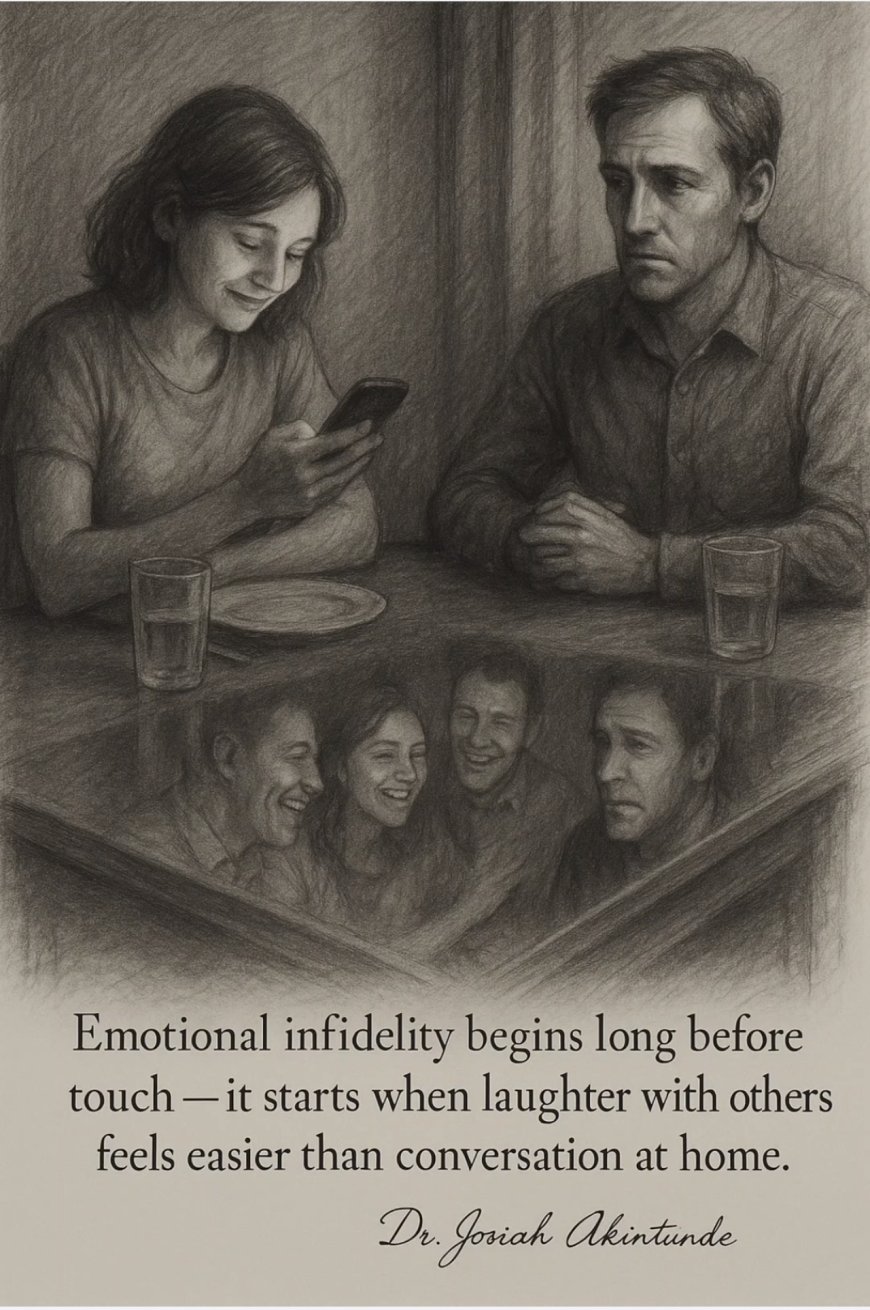In today’s fast-paced and demanding world, many married women find themselves in environments that encourage close interaction—at work, in social spaces, or through online connections. What often begins as lighthearted conversation or friendly laughter can gradually grow into something deeper, something that quietly competes with the intimacy of their marriage.
At first, these moments seem harmless. Sharing jokes with colleagues, enjoying attention, or feeling appreciated can bring a refreshing sense of connection amid the pressures of daily life. But beneath those pleasant exchanges, something subtle and serious can begin to happen—a slow emotional drift away from one’s spouse.
When laughter with colleagues becomes easier than talking with your husband, or when a coworker’s interest feels more validating than your partner’s affection, the danger is already present. The shift may not seem obvious, but it starts to affect where the heart finds comfort and belonging. Slowly, emotional energy and attention—the very ingredients that keep a marriage alive—begin to flow elsewhere.
This doesn’t happen suddenly. It’s gradual, often unnoticed. The more one invests emotionally outside the home, the less there is left for the person waiting inside it. Conversations at home become shorter and less meaningful. Physical closeness may remain, but emotional intimacy begins to fade. Two people share a house, yet their hearts start living in different places.
What makes this even more dangerous is that it all feels so ordinary. No physical lines are crossed, and yet, emotional boundaries are being quietly broken. These small, unchecked indulgences can leave a marriage emotionally malnourished. What once felt like a partnership of love and mutual strength begins to turn into polite coexistence.
It’s important to understand that seeking companionship or joy in others isn’t evil—but it becomes harmful when it starts replacing the bond you share with your spouse. Marriage flourishes when both partners intentionally invest time, communication, and emotional transparency into each other. When that energy is redirected to outsiders, even in harmless doses, it leaves a vacuum that no amount of apologies can easily fill.
If a woman finds more joy in the company of others than in her husband’s presence, it’s a sign that something within the marriage needs attention, not escape. The heart must be guarded, because as the Bible says in Proverbs 4:23, “Guard your heart with all diligence, for out of it flow the issues of life.” Emotional discipline is not about being cold or distant; it’s about preserving what truly matters.
Scripture also reminds us that “the heart is deceitful above all things” (Jeremiah 17:9). What feels harmless today can easily become destructive tomorrow. Emotional fidelity is as important as physical fidelity—because it safeguards trust, peace, and spiritual harmony.
The truth is simple: momentary pleasures always come with hidden costs. They may promise excitement but often lead to emptiness. They may offer attention but steal focus from where it’s most needed. Every marriage faces seasons of boredom, stress, or emotional distance—but the solution lies in rebuilding, not replacing.
Recommit to your spouse. Reignite conversations. Laugh together again. Pray together. Build the same companionship you crave elsewhere inside your home. A strong marriage is not built by avoiding temptation alone but by intentionally nurturing love and friendship every single day.
At the end of the day, no fleeting moment of excitement can compare with the depth of a love that has been tested, refined, and strengthened through faithfulness and care. The true joy of companionship isn’t found in passing attention—it’s found in shared memories, mutual understanding, and the peace that comes from knowing your heart is safe in the right place.








